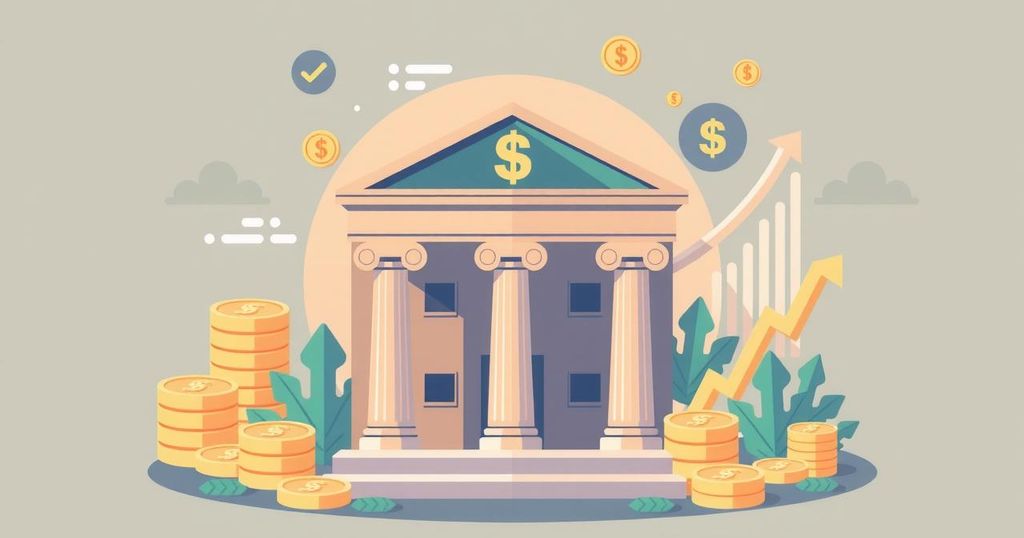Ghana’s central bank is addressing a significant increase in bad loans, with one lender reporting an 81% non-recovery rate. The overall non-performing loans ratio in the industry has risen to 21.8% as of late 2024, primarily due to the government’s debt restructuring. Governor Johnson Asiama emphasizes collaborative efforts to improve these figures amidst ongoing economic challenges, including high inflation and currency depreciation.
Ghana’s central bank is engaging with domestic lenders regarding the increasing rate of bad loans, particularly a situation in which one lender cannot recover 81% of its total credit. The overall ratio of non-performing loans in the industry stands at 21.8% as of the end of 2024, an increase from 14.8% in December 2022, coinciding with Ghana’s external debt default, according to data from the Bank of Ghana’s website.
Governor Johnson Asiama highlighted at a recent conference the urgent need to address the high levels of non-performing loans, indicating that the issue is exacerbated by the government’s debt restructuring. He acknowledged that the banks cannot alone bear the blame, as these challenges result from government actions rather than bank decisions.
The central bank aims to collaborate particularly with state-owned lenders to reduce non-performing loan ratios. This initiative comes at a time when domestic banks are crucial to government financing, especially after Ghana’s request for a $3 billion bailout from the International Monetary Fund in 2022 to manage unsustainable debt obligations.
In addition to the bad loan situation, the Ghanaian economy faces significant challenges due to currency depreciation, with the cedi losing nearly 18% of its value against the dollar last year. This depreciation has contributed to a persistent inflation rate of about 23%, compelling the central bank to maintain a policy rate of 27% since September, thus making credit less accessible for businesses and households.
Despite these challenges, Fitch Ratings indicated signs of recovery within the financial sector. They noted that the solvency issues resulting from Ghana’s default have not led to increased liquidity pressures. Governor Asiama expressed optimism, stating, “If we are able to lower the NPL ratios of banks… we should see lending rates trending down quickly.”
The situation in Ghana underscores the critical challenges faced by the banking sector amid rising non-performing loans and economic instability. The central bank’s proactive outreach to domestic lenders aims to mitigate these issues, particularly in light of recent government restructuring efforts and external financial pressures. Nevertheless, the path towards recovery remains contingent upon stabilizing fiscal conditions and addressing currency depreciation.
Original Source: www.livemint.com






